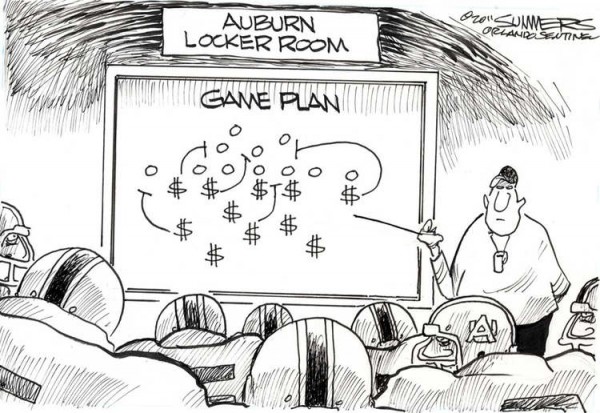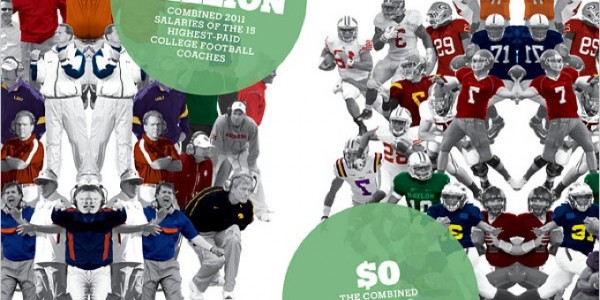
The NCAA might be non-profit organization, but we’ve seen how much the NFL, another non-profit, cares about making money. But it seems like the words coming from Big 12 commissioner Bob Bowlsby and West Virginia athletics director Oliver Luck about paying college athletes getting paid in the near future mean that the structure and landscape of college sports is about to change.
There’s a power struggle at the moment, and it seems like the Power 5 (ACC, Big Ten, Big 12, SEC, Pac-12) conferences are winning. The NCAA is no longer standing in their way of making up their own rules, which will probably include financial compensation to their student athletes.
I think that the collegiate community has learned a lesson about taking a broad latitude with name, image and likeness. I think they should be compensated for use of that name, image and likeness. What will happen, I believe, under the greater autonomy model, is that everyone will move in the direction of taking care of your student-athletes. That’s what this should be about.

So what does this mean? It’s not just about players starting to benefit from their name and image being used through commercials and other economic pipes. It might mean actually getting some sort of allowance, besides the full scholarship they get to play for certain schools.
According to Texas athletics director Steve Patterson, players are already getting enough from the schools. According to him, the value of a Texas scholarship could be enough to place a student-athlete in the top third of household income among Americans. He also disagrees with the presumption that players are getting nothing out of jersey sales, using their faces through advertising and merchandising. He disagrees with having them make a cut out of that very lucrative pie.
But Patterson is a minority in this one. Most Big 12 decision makers think that deserve to get more money. Someone might call it simply taking better care of student-athletes, but the bottom line is giving them more money, and not just in the form of a scholarship.
There are fears of complications and people taking advantage of the situations. Some schools might be able to offer recruits more money because of the difference in prices and value from campus to campus. Loopholes might be used by donors, and while Luck said he wouldn’t have minded Geno Smith making some money from an advertisement for Nike, Coca-Cola or a West Virginia hospital while he was in school, there is a fear agents might create a market for the athlete to advertise with an apparel company that competed with the university’s.
